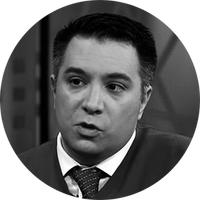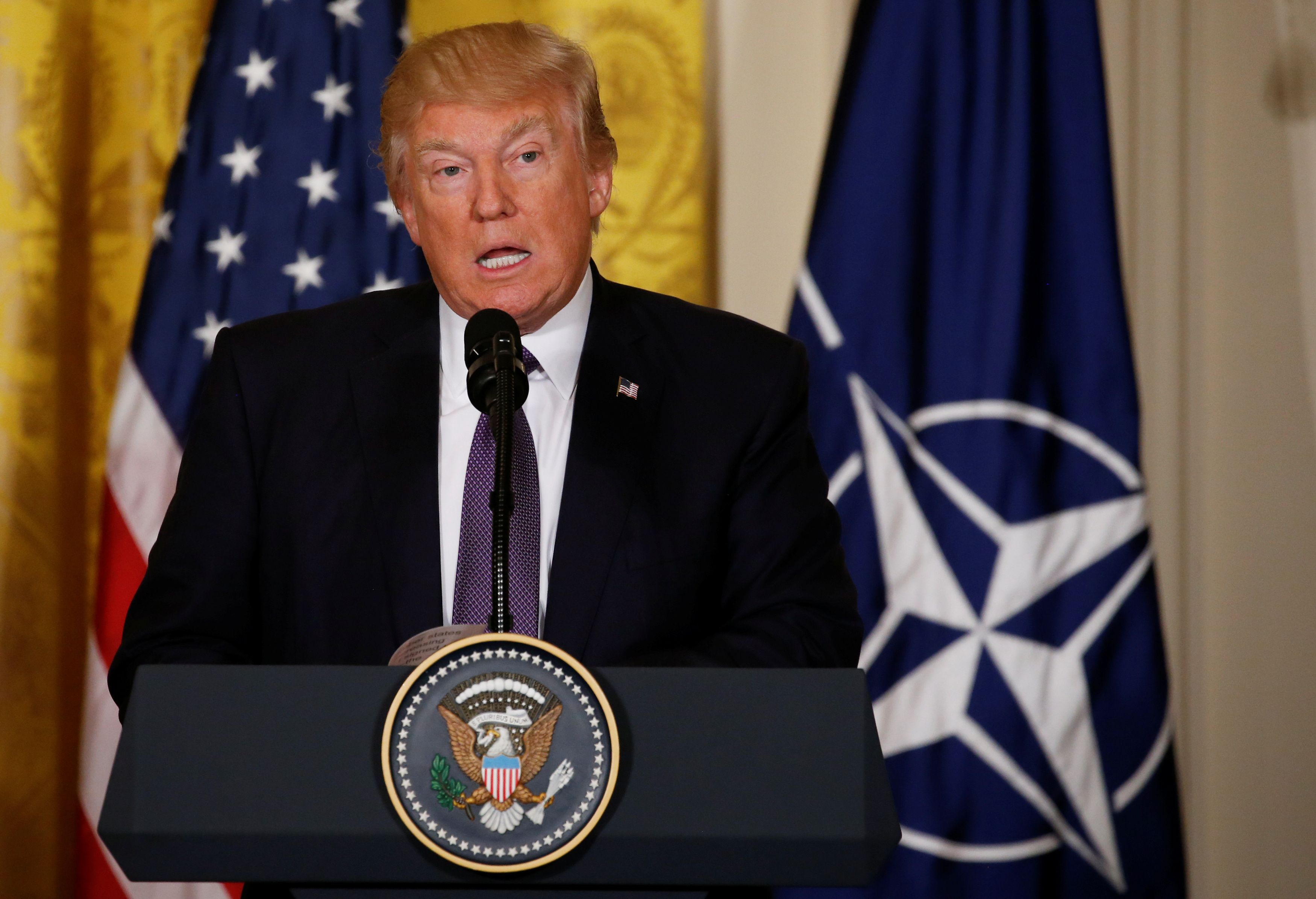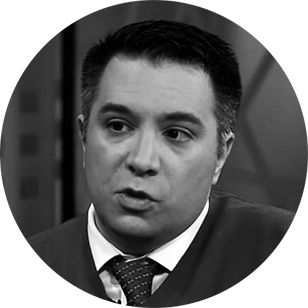Can Trump make peace with NATO?
Why it's so important that Trump not make a hash of Thursday's summit


A free daily email with the biggest news stories of the day – and the best features from TheWeek.com
You are now subscribed
Your newsletter sign-up was successful
One of the benefits of working amidst national security think tanks in Washington, D.C., is that my boyhood obsession of playing "war" never had to go the way of Saturday morning cartoons — it just took on a different form. But in this adult version of G.I. Joes — war games that model how nations will react to different crises, such as invasions, terror attacks, or general nuclear war — the results can be downright terrifying. They also reinforce what should be obvious to anyone who has studied geopolitics: Alliances matter.
Indeed, the present situation in Europe — which President Donald Trump is about to confront head on thanks to his participation in a critical NATO summit Thursday — makes for some of the most intense and chilling war games I have ever participated in.
For example, last year during a simulation that took place in the Washington area at a local think tank, experts assembled from around the world gamed out what would happen if Russia decided to launch a full-scale invasion of the Baltics. The results of the simulation were shocking: NATO forces were unable to stop the Russian advance, and a British counterattack resulted in Russia using tactical nuclear weapons. But just as things were about to get interesting, the game ended — the rules of the simulation stipulated that we only game out the first three days of the conflict, so as luck would have it, we hit the three-day mark just as we stepped into Cuban Missile Crisis territory — well worse, to be honest.
The Week
Escape your echo chamber. Get the facts behind the news, plus analysis from multiple perspectives.

Sign up for The Week's Free Newsletters
From our morning news briefing to a weekly Good News Newsletter, get the best of The Week delivered directly to your inbox.
From our morning news briefing to a weekly Good News Newsletter, get the best of The Week delivered directly to your inbox.
But could this have been just an outlier? Could the result — the beginning of what would likely be a wider nuclear war — just be a matter of chance? Eager to see what would happen, we re-ran the simulation weeks later. While this game was played over a longer period, seven days to be exact, and with different participants playing different nations, the results were the same: Nuclear weapons were used — and again by Russia first.
The good news is that this was all just a game. It does, however, serve as a useful reminder of why tensions in Europe between NATO and Russia still matter and why the upcoming NATO summit is of vital importance. While Moscow does not seem intent to sweep into the Baltics anytime soon, the number of pressure points between Russia and NATO is alarmingly high. From tensions in the Baltics to the war in Ukraine being on permanent hold to the Syrian civil war still raging, it would take little to spark a real crisis. And considering the close interaction of U.S. and Russian forces, all it would take is one pilot flying too close to his counterpart to start a showdown not seen since the days of the Cold War.
Considering the stakes above, as well as the constant threat of terrorism that we were all just so tragically reminded of, the new administration must make sure the NATO alliance remains a critical priority for Washington as it continues to set its foreign policy agenda. While the upcoming summit will indeed be a short one, every minute must be made to count. Specifically, I would offer three very easy bits of advice for President Trump in Brussels that would not only reinforce the alliance but strengthen it.
First — and this one is easy — do no harm. By making a NATO summit part of his first trip overseas, Trump is showing his intent to make the alliance a top priority. This is itself an achievement. But he can throw away all that goodwill by making a crazy remark or going off the rails — especially by an ill-advised tweet. He needs to stay on the talking points provided by his team and not deviate. Speaking of which …
A free daily email with the biggest news stories of the day – and the best features from TheWeek.com
Second, Trump needs to declare his unquestioned support for the alliance — no more veiled threats to leave NATO if he does not get his way on spending by other members. Period. He should push, and push hard, to make sure states are spending their fair share to support what is surely the most successful military alliance in history, but acting in a more prudent diplomatic fashion will go much further than threats.
Finally, President Trump needs to allay alliance fears over his potential to make nice with Moscow at their expense. While it would seem, at least for the moment, the administration has no room to maneuver any deals with Russia, Trump must make clear that deterring potential Russian revanchist dreams will be his top priority. The president must underline that he will not stand for any Kremlin interference in the internal affairs of NATO members or let Russia challenge their borders. Such a declaration would help put to rest any notions that this administration would not be there in a crisis, something that would tear the heart out of any alliance.
Coming in at two hours — described by some as one of the briefest summits ever — provides President Trump a much-needed opportunity to look presidential and reinforce a critical alliance. Let's just hope he takes advantage of it.
Harry J. Kazianis is director of defense studies at the Center for the National Interest, founded by former U.S. President Richard M. Nixon.
-
 How to navigate dating apps to find ‘the one’
How to navigate dating apps to find ‘the one’The Week Recommends Put an end to endless swiping and make real romantic connections
-
 Elon Musk’s pivot from Mars to the moon
Elon Musk’s pivot from Mars to the moonIn the Spotlight SpaceX shifts focus with IPO approaching
-
 ‘Hong Kong is stable because it has been muzzled’
‘Hong Kong is stable because it has been muzzled’Instant Opinion Opinion, comment and editorials of the day
-
 Epstein files topple law CEO, roil UK government
Epstein files topple law CEO, roil UK governmentSpeed Read Peter Mandelson, Britain’s former ambassador to the US, is caught up in the scandal
-
 Iran and US prepare to meet after skirmishes
Iran and US prepare to meet after skirmishesSpeed Read The incident comes amid heightened tensions in the Middle East
-
 Israel retrieves final hostage’s body from Gaza
Israel retrieves final hostage’s body from GazaSpeed Read The 24-year-old police officer was killed during the initial Hamas attack
-
 China’s Xi targets top general in growing purge
China’s Xi targets top general in growing purgeSpeed Read Zhang Youxia is being investigated over ‘grave violations’ of the law
-
 Panama and Canada are negotiating over a crucial copper mine
Panama and Canada are negotiating over a crucial copper mineIn the Spotlight Panama is set to make a final decision on the mine this summer
-
 Why Greenland’s natural resources are nearly impossible to mine
Why Greenland’s natural resources are nearly impossible to mineThe Explainer The country’s natural landscape makes the task extremely difficult
-
 Iran cuts internet as protests escalate
Iran cuts internet as protests escalateSpeed Reada Government buildings across the country have been set on fire
-
 US nabs ‘shadow’ tanker claimed by Russia
US nabs ‘shadow’ tanker claimed by RussiaSpeed Read The ship was one of two vessels seized by the US military
